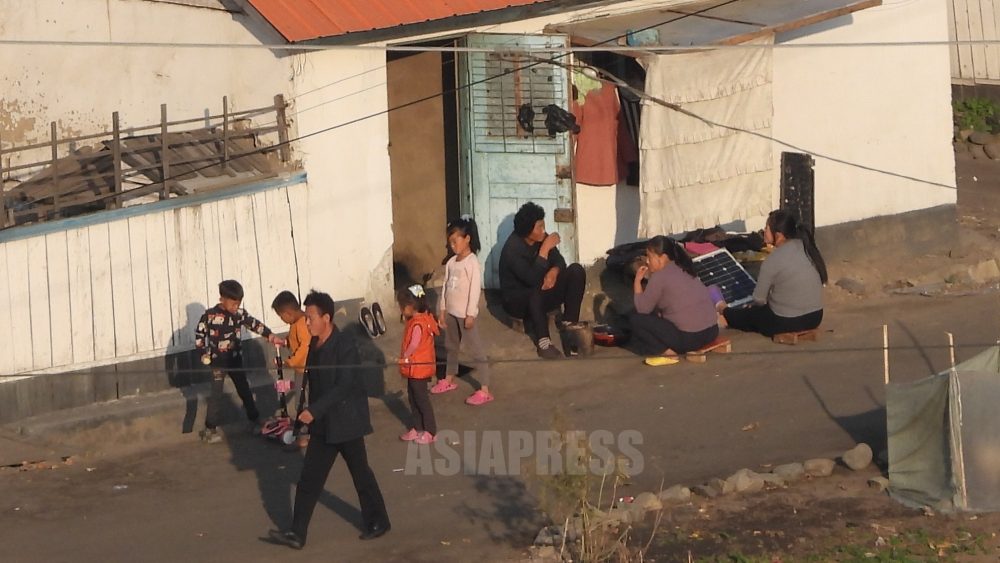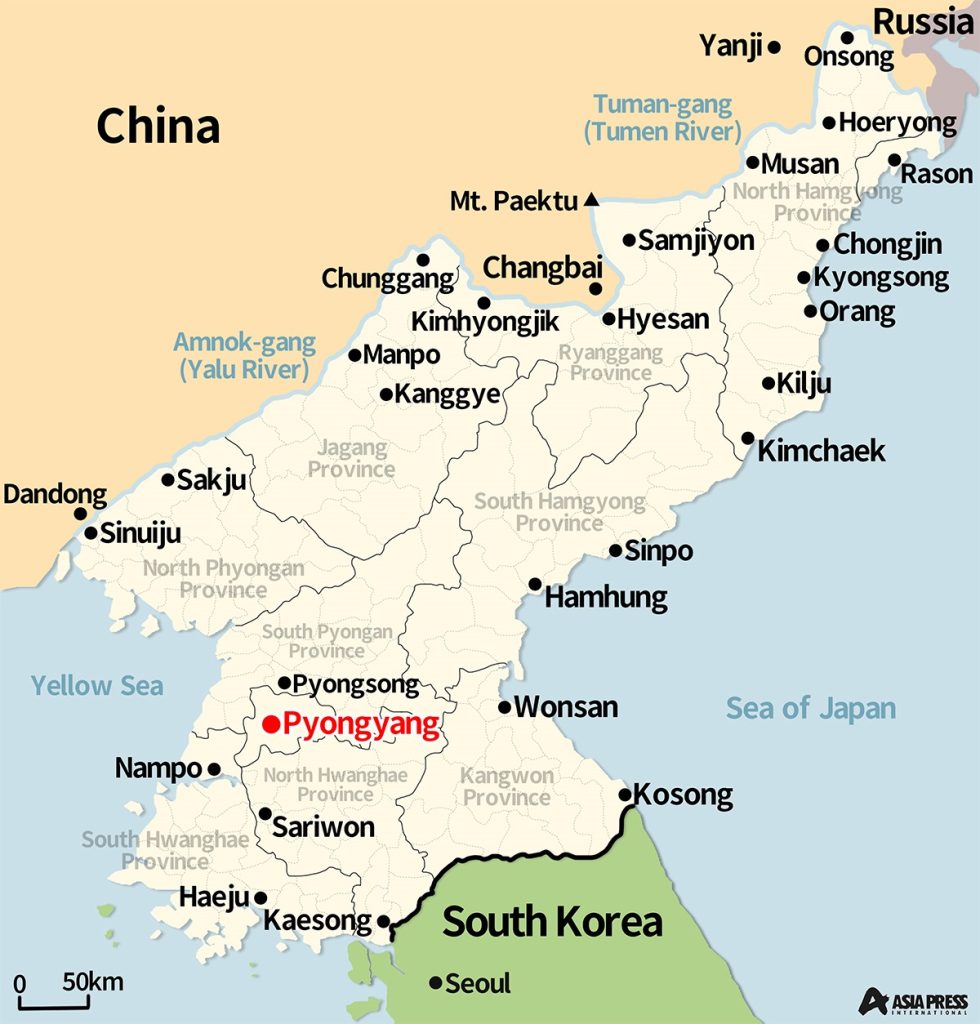
Alongside the state monopolization of distribution, the most significant recent change in North Korea's economy has been the establishment of the 'Socialist Enterprise Responsibility Management System.' This system was introduced to boost productivity by significantly expanding corporate management authority across all areas—from planning and production to pricing, sales, and profit allocation. Reports indicate that this system has recently begun operating in earnest, and donju are now exploiting the gaps created by increased corporate autonomy. (By JEON Sung-jun / KANG Ji-won)
◆ What is the 'Enterprise Responsibility Management System'?
The Enterprise Responsibility Management System was first introduced in May 2014 through Kim Jong-un's dialogue with party, government, and military officials titled "On Establishing Our Own Economic Management Methods in Line with the Demands of Current Development." It was later formalized at the 7th Congress of the Workers' Party of Korea in May 2016, and in August 2019, it was enshrined in the constitution through the Supreme People's Assembly, drawing attention from media and academia.
The relevant section of the revised North Korean Constitution, Article 33, states:
"...The state implements the socialist enterprise responsibility management system in economic management and ensures proper utilization of economic levers such as cost, price, and profitability."
What specifically has changed with the introduction of this system?
In short, state control over enterprises has been reduced while corporate autonomy has been expanded. Previously, the state made detailed decisions about everything—raw materials, production volumes, sales outlets—while enterprises simply carried out production according to state plans and supply. Now, instead of reduced state support, enterprises fulfill (comparatively smaller) state plans and use the remaining time and resources for autonomous business activities, taking responsibility for the results.
◆ "Now It's Enterprises, Not Markets"
Recent reports from ASIAPRESS reporting partners show that the enterprise responsibility management system is operating on the ground.
In June, Reporting Partner C in Hyesan, Ryanggang Province, said:
"Now you have to work with enterprises—there's not much you can do in the markets anymore. Even when factories want to order work uniforms, they can't place orders with individuals. They have to order from local factories or state enterprises, and production only begins after paying at least 50% upfront."
Around the same time, Reporting Partner B also mentioned changes in corporate management practices:
"Enterprises can now sell goods, so they've created separate enterprise stores selling items like ironware, shoes, beer, and bread under the enterprise name."
This explains how a steel factory might make and sell beer—enterprises can now develop and sell products completely different from their original production items, as long as it benefits the company.
Reporting Partner D also reported on changed labor market practices:
"Trading companies can no longer give work directly to individuals and pay them with money or goods like before, as this now causes problems. Instead, they request workers from enterprises and pay labor costs to them."
D further explained: "It's currently squid season, but it's difficult to go to sea without being registered in the fisheries industry. So enterprises dispatch personnel to fishing cooperatives to earn money, which is then used as corporate operating funds."
What was once individual squid fishing has now become inter-enterprise transactions through labor dispatch contracts, with enterprises receiving wages for dispatched workers from fishing cooperatives to use as operating capital.

◆ Why Now?
Why is the enterprise responsibility management system being implemented in earnest now, a full decade after its introduction?
Dr. Hwang Ju-hee at the Korea Institute for National Unification, who has long studied the 'Socialist Enterprise Responsibility Management System,' says this is the recent manifestation of a system that has been gradually taking root:
"While the policy was announced ten years ago, that was more about presenting an ideal direction. Actual field implementation has been a gradual process. Particularly, the 'Socialist Enterprise Responsibility Management System' involves reorganizing overall economic management, so it inevitably had to be long-term."
Dr. Hwang explained that during this period, provisions related to the system's introduction have been steadily revised and supplemented across sectoral laws, including enterprise law, farm law, and fiscal law.
She noted that monitoring of North Korea's official media and internal materials related to the enterprise responsibility management system shows that reports about its achievements began appearing around 2022. Particularly in 2023 and last year, there have been increasing reports about the system's implementation, including the selection of top ten enterprises meeting the requirements of the 'Socialist Enterprise Responsibility Management System.'
However, Dr. Hwang cautioned that it's still too early to be optimistic about the system's smooth implementation, highlighting structural constraints inherent in North Korean enterprises:
"As long as North Korea's chronic practice of imposing social tasks continues and deeply rooted corruption structures aren't resolved to some degree, there are various structural burden factors that prevent this system from being implemented effectively. Enterprises' limited fundraising capacity also acts as another constraining factor."
Indeed, North Korean enterprises' financial difficulties appear to be severe. What's interesting is that donju are entering enterprise operations amid these circumstances.
As Reporting Partner B explained:
"While they're supposed to activate inter-enterprise transactions, enterprises actually lack the funds to purchase materials and need to borrow money. Donju are making money by acting as middleman brokers."
All of this is possible because corporate autonomy has increased with the activation of the enterprise responsibility management system. In the next installment, we'll examine the rise of the donju alongside recent enterprises, look at their activities, and conclude the series by diagnosing who these people really are. (Continued in the next installment)

- <Inside N. Korea>Large influx of Russian flour appears underway... Regular sales through grain stores, rations to major mines. Residents without cash unable to purchase
- <North Korea Analysis>How Should We View Kim Jong-un's Agricultural Policy Reform?
- <Inside N. Korea>'Show Me What's in Your Phone' - A Student Souple Resisted the Overly Strict Inspection, But...
- <Atomic Bomb Survivors Who Went to N. Korea>"My Brother Suffered for Life": Testimony of N. Korean Defector Park Young-sook
- <Video> Call with a N. Korean Woman (1) Expectations for Dialogue with the Lee Jae-myung Administration? "I don't think the Kim regime will do anything with the South..."

























